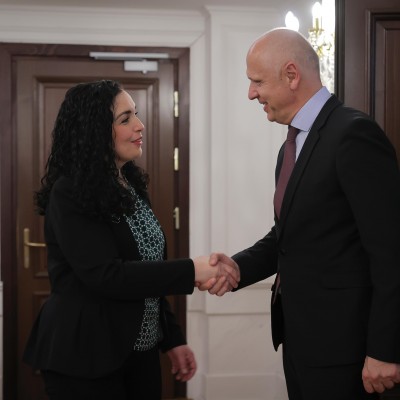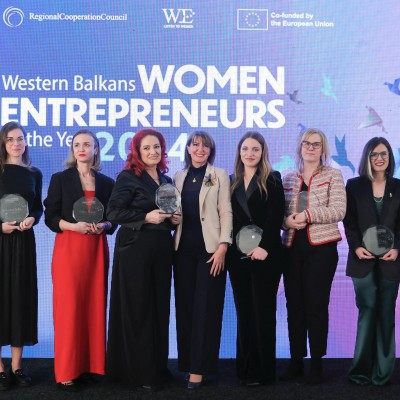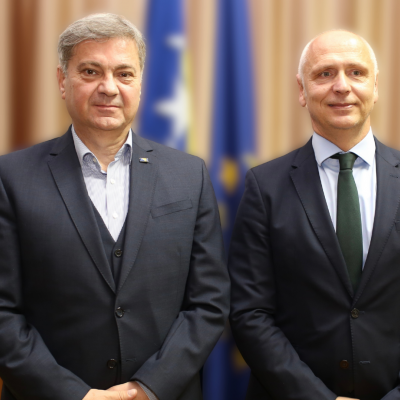RCC Secretary General gives a guest lecture on regional cooperation and Growth Plan at the Faculty of Political Science in Sarajevo Common Regional Market is a path to a better, more secure future
03 February 2025
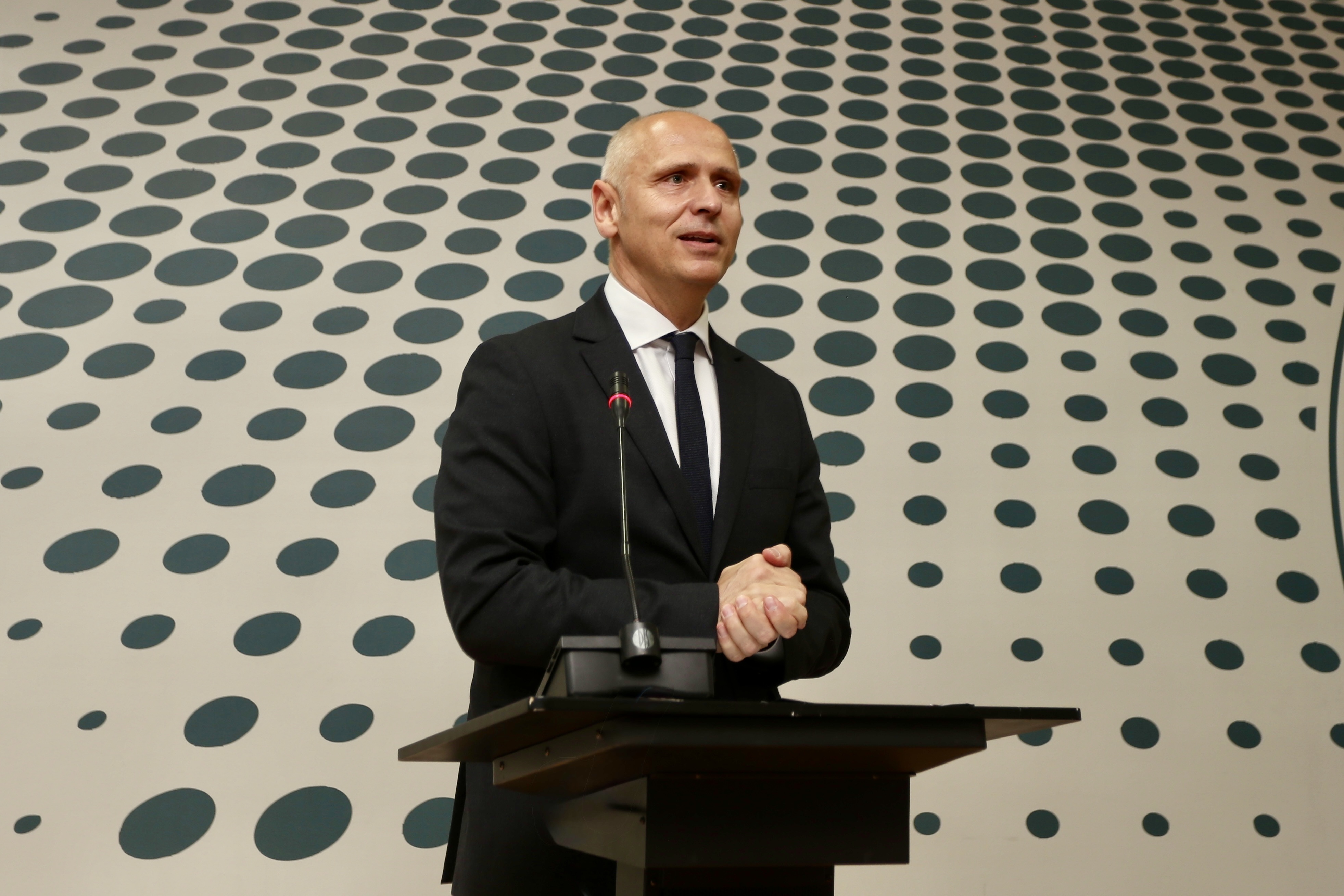
RCC Secretary General Amer Kapetanovic gave a guest lecture on regional cooperation and Growth Plan at the Faculty of Political Science in Sarajevo on 3 February 2025 (Photo: RCC/Jasmin Sakovic)
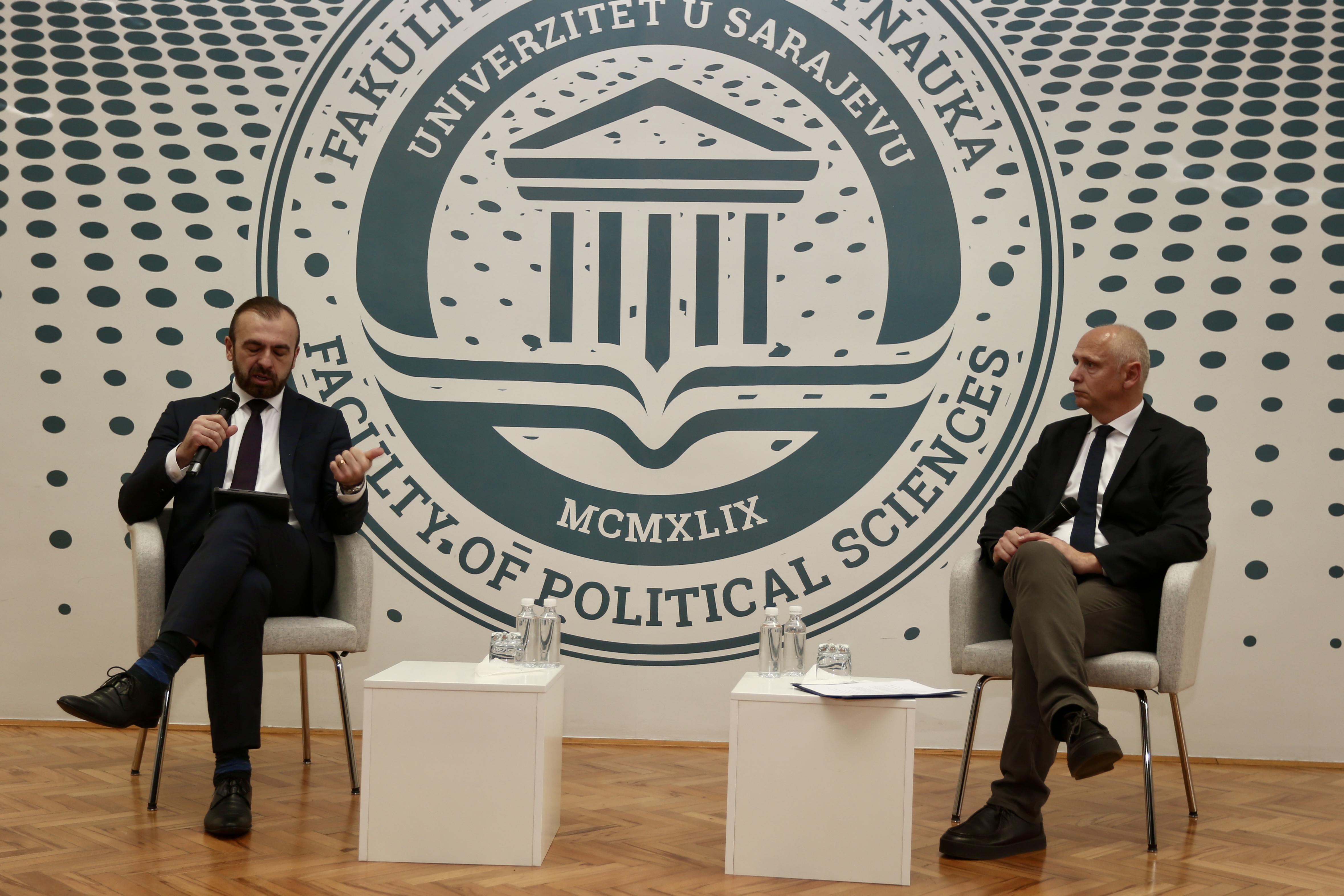
RCC Secretary General Amer Kapetanovic with Sead Turcalo, Dean of the Faculty of Political Science in Sarajevo who moderated a Q&A session during a guest lecture on regional cooperation and Growth Plan, in Sarajevo on 3 February 2025 (Photo: RCC/JAsmin Sakovic)
Sarajevo – The Secretary General of the Regional Cooperation Council (RCC), Amer Kapetanovic, delivered a guest lecture titled Growth Plan: Walking the Talk – Regional Cooperation in Action at the Faculty of Political Science in Sarajevo today.
The event gathered university professors, students, representatives of Bosnia and Herzegovina institutions, international organisations, and the diplomatic corps, sparking a dynamic discussion on regional economic integration, EU integration, and the role of regional cooperation in strengthening the Western Balkans.
In his presentation, Secretary General Kapetanovic emphasised that regional cooperation is no longer an option, but a necessity for the region’s economic future.
"The Western Balkans has two choices: grow together or struggle alone. 82% of people in the region believe in regional cooperation. But how often do we turn belief into action? The Growth Plan and its integral part, the Common Regional Market, are our chance to do just that—they provide tangible opportunities for businesses, institutions, and, most importantly, young people who see their future in a prosperous and economically integrated Western Balkans," said Kapetanovic.
Mr Kapetanovic highlighted the real benefits of regional cooperation reached so far, including: doubling of interregional trade, roaming free Western Balkans, lower roaming prices between our region and EU, green lanes enabling less waiting time at borders and enabled more mobility of workforce within the region.
The Growth Plan for the Western Balkans, introduced by the European Commission, offers the region an open door to access the EU Single Market, new investment, and job opportunities. However, as Kapetanovic pointed out, these benefits are conditional: “The EU has been clear—if we want to benefit from the Growth Plan, we must first deliver on regional economic integration and domestic reform agendas. The Common Regional Market is not just a policy—it is a path to a better, more secure future. If fully implemented, it could increase our GDP by 10%.”
He also called for urgent reforms, noting that the EU will allocate 6 billion euros in funding only to economies that demonstrate progress in governance, public finance, and the rule of law. “Some Western Balkans economies have already submitted their reform agendas and are set to receive pre-financing. Unfortunately, Bosnia and Herzegovina has not finalised its reform agenda, putting us at risk of losing access to these critical funds. We cannot afford to miss this opportunity,” he warned.
Kapetanovic also underscored that the RCC is not solely focused on the Western Balkans, but plays a broader role in South East Europe (SEE), acting as an operational arm of the South-East European Cooperation Process (SEECP) with 13 participants, including five EU member states. He also highlighted the RCC’s coordinating role in the SEE 2030 Strategy, which aligns with the UN Sustainable Development Goals and aims to tackle key regional challenges such as poverty reduction, depopulation, and disaster preparedness. “Our work extends beyond the Western Balkan region. We are an operational arm of SEE governments, supporting sustainable economic growth, green and digital transformation, and reducing social and economic disparities with the EU."
Following the speech, Faculty Dean Sead Turcalo moderated a lively Q&A session, allowing students and experts to engage directly with Secretary General Kapetanovic on issues ranging from economic reforms to regional security.
Kapetanovic closed with a message about the future: “Regional cooperation is not about politics, institutions, or bureaucracy—it’s about people. It’s about ensuring that five, ten years from now, we all have more opportunities, better jobs, and an easier path to success right here in our region. That future is within reach, but only if we choose to build it together.”
The RCC remains committed to driving regional cooperation forward and ensuring that the Western Balkans and South East Europe move together towards a stronger, more connected future.

